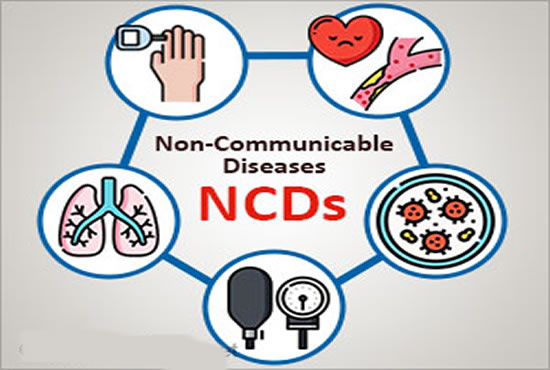Health experts from International SOS have raised concerns about the rise in chronic diseases, including non-communicable diseases (NCDs) at workplaces across Africa.
In a statement titled *“The hidden health crisis threatening Africa’s workforce and business continuity,”* International SOS said that NCDs are becoming one of the biggest threats to worker health, productivity, and business operations in Africa.
These long-term illnesses—like heart disease, diabetes, and high blood pressure—often don’t show signs until it’s too late. They are quietly creating serious health problems in workplaces.
Research shows that NCDs are causing up to a 32% drop in productivity across Africa.
These diseases mostly affect younger, working-age people, making it harder for them to work well and contribute to their jobs.
Real-life examples and data show how serious this problem is. In Chad, for instance, routine health checks at one company found that 30% of employees had high risk for heart disease, and 55% had early signs of diabetes.
These results show the urgent need to take health seriously at work to protect both employees and businesses.
Nigeria is also facing a serious challenge. Even though most people are young (aged 20–45), more and more are developing NCDs.
This rise is linked to city living, lack of physical activity, unhealthy diets, drinking alcohol, and stress.
Dr. Abraham Udoudom, Medical Director at International SOS, explained that cultural habits and changing diets in cities make it harder to prevent and control these diseases.
Dr. Eugenio Langa, Country Medical Director for International SOS in Angola, added that NCDs often go unnoticed in Africa until people face serious health problems. He said there is a strong need for education, especially in rural areas, to help people seek early treatment and use workplace health services.
The statement also shared a strong example from Angola, where a health survey in an oil and gas company found that over 40% of workers had high blood pressure and didn’t know it.
If left untreated, this condition could lead to major health problems and financial losses for both employees and employers.
Dr. Langa added that in remote areas, healthcare is often hard to reach and there is not enough funding for NCDs. He said employers have a big chance to take action by setting up strong health programs—not just to check a box, but to protect their workers and their businesses.
The statement also said that many African countries depend on outside funding for more than a third of their health budgets, which makes it harder to fight NCDs.
Because of this, employers need to change how they think about health. They should look at ways to lower healthcare costs and workplace accidents, boost employee morale and performance, keep good workers, and show they care about staff wellbeing.
Dr. Udoudom warned that by 2030, NCDs will become the top cause of death, even more than infectious diseases. He said businesses should work with governments and put NCD prevention at the center of their workplace health plans. This is not just about health—it’s also a smart move for the economy. Companies can help build a healthier, more productive workforce and support Africa’s growth.


